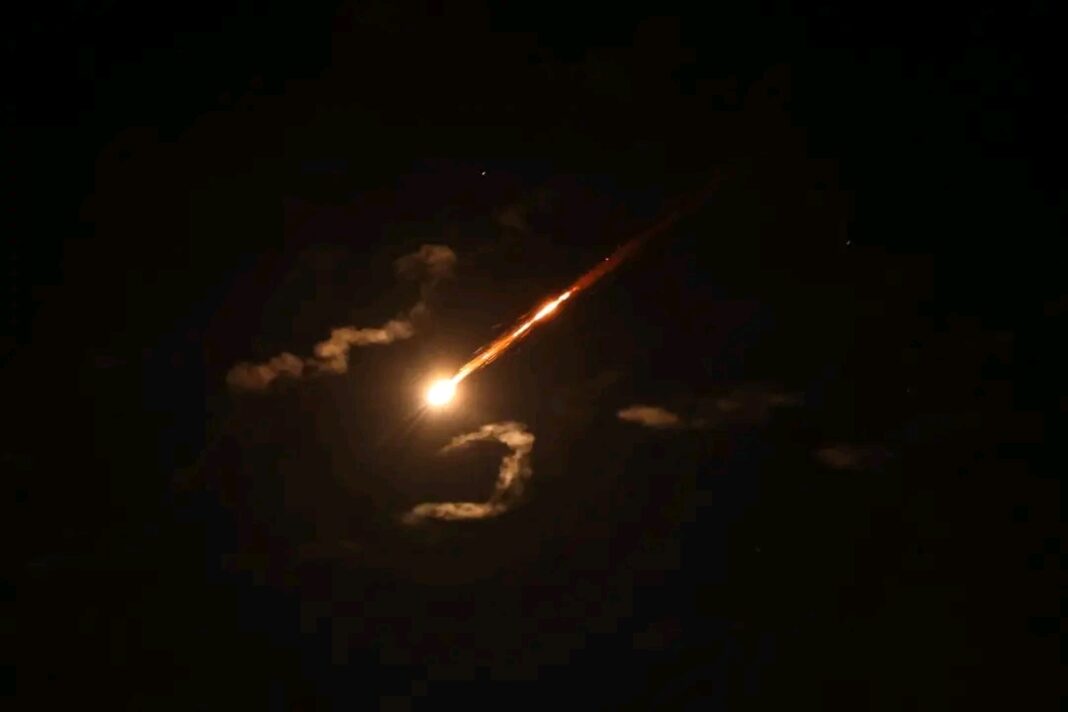Iran has launched ballistic missiles at a major US airbase in Qatar and reportedly targeted another in Iraq, escalating tensions following American airstrikes on Iranian nuclear sites.
Missile Attack on Al Udeid Air Base
Qatar’s government confirmed that its air defences intercepted missiles aimed at the Al Udeid Air Base—the largest US military facility in the Middle East—after loud explosions rocked Doha and nearby Lusail on Monday night.
“Iran’s National Security Council confirms the attack as a direct response to the US’s aggressive and insolent action against our nuclear infrastructure,” state media quoted officials as saying. The council emphasized that the number of missiles launched matched the number of bombs used in the US strike, calling it a “measured and proportional response.”
A US defense official said that both short- and medium-range ballistic missiles were fired from Iran. There were no immediate reports of casualties, with the base reportedly evacuated before the attack.
Iran’s Islamic Revolutionary Guard Corps claimed six missiles struck the base. Meanwhile, Iranian state media said additional missiles were launched at a US base in Iraq, though Iran’s security council did not confirm that, and Iraqi sources told AFP that no US facilities had been hit so far.
Qatari and Regional Reactions
Qatar’s Foreign Ministry condemned the attack, calling it a “blatant act of aggression” and warned that it “reserves the right to respond appropriately.”
Saudi Arabia, a key Gulf rival to Iran, swiftly condemned Tehran’s strike “in the strongest terms” and expressed readiness to support Qatar with “all necessary resources.”
Amid growing security concerns, Qatar temporarily closed its airspace earlier in the day. Bahrain and Kuwait followed suit, suspending air traffic. Foreign embassies in Doha, including the US mission, issued shelter-in-place advisories to citizens.
US and Israeli Strikes on Iran
The missile strike came a day after the United States joined Israel’s military campaign against Iran, launching bunker-buster bombs at three Iranian nuclear sites, including the heavily fortified Fordo uranium enrichment facility.
Former US President Donald Trump boasted on social media that the strikes had “obliterated” Iran’s nuclear capability. However, Pentagon officials urged caution, saying it was too soon to determine the extent of the damage.
Iranian and Israeli Escalation
Earlier Monday, Israel conducted what it claimed were its most intense attacks yet on Tehran, striking several strategic sites including:
- Evin Prison, which holds political prisoners
- Command centers of the Revolutionary Guard and Basij militia
- The Fordo nuclear site, targeting access routes
Iran responded with missile salvos toward Israel, triggering power outages in parts of Tehran. Israeli media reported damage to an unspecified “strategic infrastructure” in the south of the country. Censorship rules restricted further details.
Iran’s health ministry reported that over 400 people had died in Israeli strikes, while Iranian attacks on Israel have killed at least 24 people.
Global Reactions and Nuclear Concerns
French President Emmanuel Macron called for de-escalation, stating, “The spiral of chaos must end.” China warned both nations of the potential economic fallout and urged restraint.
US Secretary of State Marco Rubio appealed to Beijing for help in deterring any Iranian move to block the Strait of Hormuz—a vital oil shipping route.
Rafael Grossi, Director of the International Atomic Energy Agency (IAEA), told the UN Security Council that inspections were currently unable to assess damage at Fordo. He reiterated that “armed attacks on nuclear facilities should never take place.”
Despite the hostilities, the IAEA maintains there’s no evidence Iran is actively pursuing a nuclear weapon, even though it enriches uranium up to 60% purity—just below weapons-grade levels.
Trump Hints at Regime Change
While the Pentagon distanced itself from regime change, Trump suggested otherwise on his Truth Social account:
“If the current Iranian Regime is unable to MAKE IRAN GREAT AGAIN, why wouldn’t there be a Regime change???”
His press secretary Karoline Leavitt confirmed Trump remains “interested in diplomacy” but said the Iranian people might choose to topple their government if it refused to negotiate.

